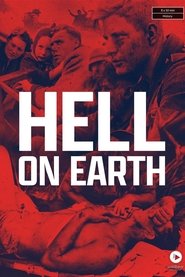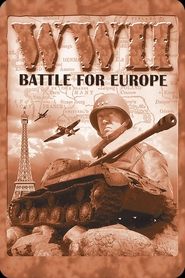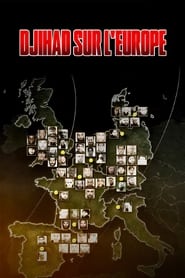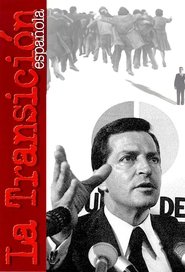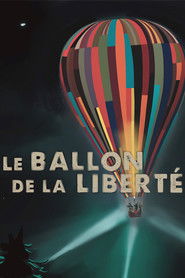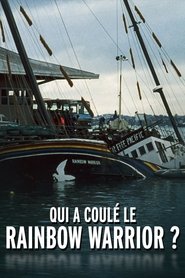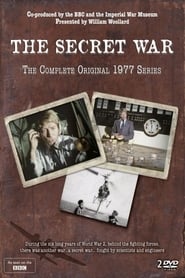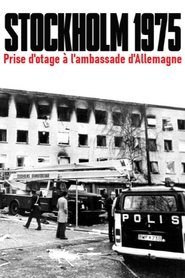Popular War Politics TV Series - Page 112
-
Hell on Earth
2022
-
WW2 - Battles for Europe
2019
star 9Eye-witness veteran testimony from men who served under fire on the frontline -
Gazebo #Social News
2016
Gazebo #Social News
2016
-
戚继光
2014
戚继光
2014
-
Jules
2024
Jules
2024
-
Enemies
2021
Enemies
2021
A Docu-Action limited series on the secrets of Arab leaders through the eyes of Israeli intelligence services. For years, they were considered the nemeses of Israel and the absolute demons for anyone who lived here. Many of them died as enemies, others finally recognized Israel and began to negotiate with it, even signing agreements with it after giving up on warfare. But how much do we really know about who they were, and how to understand their real intentions in real time, in the days when they openly declared their desire to erase the "Zionist entity"? Enemies brings the stories of six major leaders in the Middle East: Presidents of Egypt, Gamal Abdel Nasser and Anwar Sadat; President of Syria, Hafez El Assad; President of Iraq, Saddam Hussein; Ruhollah Khomeini, Iran's spiritual leader and Head of the PLO and the Palestinian Authority, Yasser Arafat, as they were reflected through the eyes of Israeli intelligence organizations. -
The Sound and the Fury
2025
star 6From the Japanese invasion of Manchuria to the siege of Stalingrad, and from the attack on Pearl Harbor to the battle of El Alamein, the events of the Second World War are presented on a 'planet level' to place it on a truly global scale -
Djihad sur l'Europe
2023
-
Afghanistan: The Great Game - A Personal View by Rory Stewart
2012
star 8Rory Stewart tells the story of foreign intervention in Afghanistan from the 19th century to the present day. -
WWII War Diaries
2017
WWII War Diaries
2017
Taken directly from the diaries of soldiers fighting in WWII, this series chronicals the experiences, losses, and victories felt on the battlefieds of the second world war. -
La transición
1995
-
Suicide Platoon
2016
Suicide Platoon
2016
A group of soldiers awaiting court martial are brought together to form an elite team of specialists during World War Two. -
Beneš 1918 1938 1948
2018
Beneš 1918 1938 1948
2018
-
The Secret War
1977
The Secret War
1977
The Secret War was a six–part television series produced by the BBC in conjunction with the Imperial War Museum documenting various technical developments during the Second World War. It was aired during 1977 and presented by William Woollard. The programme opening music was an excerpt from Mussorgsky's Pictures at an Exhibition. The closing music was by the BBC Radiophonic Workshop. The 'seventh' episode often included with video versions of the series was not part of the original series but produced separately.
 Netflix
Netflix
 Amazon Prime Video
Amazon Prime Video
 Apple iTunes
Apple iTunes
 Apple TV Plus
Apple TV Plus
 Disney Plus
Disney Plus
 Google Play Movies
Google Play Movies
 Paramount Plus
Paramount Plus
 Hulu
Hulu
 HBO Max
HBO Max
 YouTube
YouTube
 fuboTV
fuboTV
 Peacock
Peacock
 Peacock Premium
Peacock Premium
 Amazon Video
Amazon Video
 The Roku Channel
The Roku Channel
 AMC+
AMC+
 Kocowa
Kocowa
 Hoopla
Hoopla
 The CW
The CW
 Vudu
Vudu
 Starz
Starz
 Showtime
Showtime
 PBS
PBS
 Pantaflix
Pantaflix
 FXNow
FXNow
 Tubi TV
Tubi TV
 Kanopy
Kanopy
 Comedy Central
Comedy Central
 Crunchyroll
Crunchyroll
 Microsoft Store
Microsoft Store
 Redbox
Redbox
 Sun Nxt
Sun Nxt
 ABC
ABC
 DIRECTV
DIRECTV
 Crackle
Crackle
 Fandor
Fandor
 Plex
Plex
